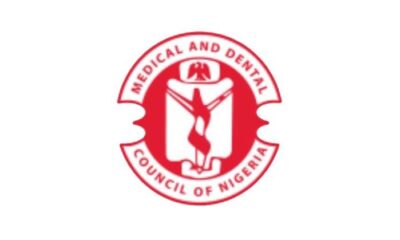Opinion
Saving The Youth From Mental Illness
Mental health experts at the University of Port Harcourt Teaching Hospital (UPTH) Neuro-psychiatric Hospital during this year’s World Mental Health Day celebration in Rivers State raised alarm over increasing mental illness. Two Psychiatrists, Dr Chidozie Chukujeku and Dr Nkpobu Kennedy alerted on the number of young people undergoing treatment at the hospital.
They attributed the cases to the increasing consumption of drugs such as marijuana, cocaine, local gin (Ogogoro), heroin, carnabis, among other hard drugs, blaming it on lack of adequate awareness. They said the awareness is low.
The prerequisite for the development and the proper utilisation of the natural resources of a nation is the development and maintenance of its human resources.
The protection of the mental health of all citizens is rapidly becoming a global concern of all persons, not merely on social welfare or humanitarian ideas but avoiding waste and those habits that cause mental illness.
The scope of the problems imposed by mental health penetrate political action, industrial productivity, family psychodymics and community life as well as education and planning. That is why practical moves and techniques in preserving mental health have posed serious challenges to psychiatrists, psychologists, criminologists, educationists and counselors, nurses, social workers, administrators, politicians and the clergy.
The problem of mental illness is much more than indicated by statistics in any society and mental illnesses range from the psychoses to the neuroses. To be specific, they include diseases such as schizophrenia, depression, hysteria, episodes of minor mental illnesses in which persons become liability to themselves, their families and their neighbours. Victims of mental illnesses become unable to communicate rationally, have a nervous breakdown, unable to work to support their families, look after their children.
They become irresponsible and run into conflict with constituted authorities or with law enforcement agents. In fact, a mentally deranged person is totally disorganized. Some of these illnesses may not last long but they may recur or have a disastrous effect on children of patients, their marriages, neighbourhood or work life if no treatment is available.
The causes of the various mental illnesses can be diagnosed on the basis of a single or combinations of hereditary, environmental and experiential factors. In other words, the make-up of an individual at any given time is a function of nature and nurture, hereditary property with which he or she started and the influences upon him or her of what has happened subsequently. The genetic equipment sets a limit to the individuals potentialities, according to Curran in 1965.
The treatment of mental illness has shifted from asylums to psychiatric hospitals and community care and rehabilitation centres and this has led to the interest in mental hygiene all the world over. One can be mentally disturbed due to unnecessary strain and stress on his mind. He might become so disgusted with life, that he attempts to commit suicide to end his life.
There is an urgent need for general public involvement in the mental health of the citizens and the creation of awareness in general public for mental hygiene as a movement. The first association for mental hygiene was formed in 1919 which grew into an International Committee for Mental Hygiene. In Nigeria, besides professional bodies and international affiliations, the Federal Government has involved itself drastically in mental hygiene through legislation such as the National Drug Decree and its enforcement agency, the National Drug Law Enforcement Agency (NDLEA).
The prevention of psychiatric illness is closely related to mental hygiene, that is, the study of measures to protect mental health, measure derived from consideration of the influence of numerous environmental factors on human health. It is associated with Pschopro-psychiatric illnesses, hence a major role is played by general prophylactic measures.
For instance, the eradication of infectious diseases, the elimination of occupational intoxication and cases of poisoning in every day life are equivalent to an absolute prophylaxis nervous and psychic illness.
It is pertinent, therefore to point out that absolute prophylaxis of psychiatric diseases tend to be based on nation-wide measures to control infections, intoxications and other harmful environmental influences. The programme on Health for All by the year 2020 widely embraced the preventive aspect of mental illness.
The life of man consists of socially useful activities, thoughts and work, so the study of their influence on health must be seen as one of the major tasks of mental hygiene. This is because man to a general extent, is the product of the social and historical development of society.
All his attributes, i.e consciousness, thinking, speech, will, character and moral qualities are the result of his intercourse with other people, and of his social upbringing.
Mental hygiene is grouped under six groups such as self-actualisation, happiness, economic efficiency, harmonious existence, human relationship and civil responsibilities. Mental hygiene helps individuals to participate fully in these human activities and anyone who is not able to feature in them is mentally deranged, and not living effective life.
Mental hygiene is an interdisciplinary affair involving medical, educational, counseling, occupational, psychological forensic as well as policy making and requires the training of medical personnel who can understand people’s psychological problems and help them to meet their demands. There is the need for the development of preventive and curative programmes in the home, school and community.
Mental health is the ability to adjust satisfactorily to the various strains and stresses of the environment we meet in life and mental hygiene is not a passive acceptance of life and its conditions. It is a life in which one’s potentialities are coming to full development, in which one’s inner nature expresses itself freely and is not warped, suppressed or denied.
A mentally health person is one who is adaptable and resident in mind, socially adaptable and participates in social activities, whose desires are in harmony with socially approved goals, emotionally satisfied and has adequate insight into his own conduct, enthusiastic and reasonable as well as has developed good habits in various aspects of life and definite attitudes towards value of life and a stable life philosophy.
Mental health is a condition which permits the maximum development of physical, intellectual and constructive emotional states of the individual in order to be able to contribute maximally to the welfare of the society and to realize his ideas and aspirations in life. Any person who is unable to satisfy these qualities or virtues is a certified mad man or woman. So, our various psychiatric hospitals, governments, psychiatrists, and the general society and social welfare organisations and bodies must take this issue more seriously than ever in preventing and curing the mentally affected citizens.
There should be increased awareness campaign on mental health if our youths must be the future leaders they are expected to be.
Opinion
Other Sides In Junior Pope’s Death

The tragic boat mishap of Wednesday, April 10, 2024, which claimed the lives of popular Nollywood actor, Mr John Paul Obumneme Odonwodo, popularly known as Junior Pope, and four others, has sent shock-waves across the Nigerian movie industry, and set the social media buzzing with reactions.
A contingent of 12 movie crew members had set out for a boat journey from the River Niger Cable point, a waterside jetty at Asaba in Delta State, to cross to the other side of River Niger, into Anam, a riverine community in Anambra State, for the shooting of a movie set titled ‘Another side of Life’ produced by Adanma Luke. Unfortunately, a series of avoidable events culminated the journey into an ill-fated expedition that sent fives lives to ‘the other side of life.’ The incident made the movie’s eventual ban a nullity, having played-out its symbolic meanings in real life while in the making, rather than on envisaged screens.
An avoidable incident, it exposed our society’s casual attitudes towards marine and general safety, as well as our endemic superstitions, while telling, on several flaps, other side tales of reality in the accounts of what transpired during the production, or rather, play of Adanma’s ‘Another side of Life.’
While veteran actor and Senior Adviser on Military Relations to the President of Actors’ Guild of Nigeria, Mr Steve Eboh, claimed he missed joining the ill-fated boat because he arrived too early before the crew, and had to go back, the producer, Adanma Luke, claimed she missed it because she came too late.
A journey’s jolly take-off from Asaba, Delta state, which ended tragically in its return from the other side in Anambra State, proved to be a rascally journey that showed the other side of rascality, even as T. C. Okoye claimed that pre-performing of obeisance to some marine spirits saved his life. But it was T. C. Okoye who had to hang unto a boat’s anchor in the face of death, rather than rely on the powers of the spirits he had appeased with Fanta, to await rescue from mortal men – sensible men, whose advise that one needs wear life jack during marine journeys – he had forsook, yet gave glory to his rituals after rescue.
Conversely, one may flip the flap to consider the other side of T. C. Okoye’s rituals to ruminate on other possibilities. Could the ringing of bells, spraying of money and snacks, and pouring of Fanta, have evoked the anger of the ‘marine spirits’ as rumoured, or distracted the boat driver, to the point of accident? And as reported by The Punch, what’s the significance of T. C. Okoye ‘dashing’ ritual money to innocent children whom circumstance made to be by the riverside?
Also, the argument by Mr Steve Eboh, that “If the star actors in that boat had wanted to wear life jackets, they would have been given the jackets” holds no ground, because the guild, as well as all the marine transport stakeholders, should have enforced strict safety compliance by all voyagers. It is therefore commendable that the Anambra State Commissioner of Police, Aderemi Adeoye, has ordered exhaustive investigations into the matter to determine criminal liability of all persons involved.
However, in the melee of pandemonium that accompanied rescue efforts, Nollywood celebrities, our society’s supposed role models, prioritized superstitious rescusitation over sure medical practice, rushing victims between spiritualists and hospitals, until a ‘pope’ whose work and journey had bound with the superstitious, died amidst superstition. Indeed, it’s during crises, when people care less about ‘packaging,’ that truth and the real personality of humans stand bare and naked.
While medical personnel who got their chance late had certified Jnr Pope dead, our star-persons held unto their spiritual advisers who claimed his spirit coming back to life, up until reality finally dawned that pope’s spirit has permanently crossed to the other side of life.
Regrettably, the reality has not fully dawned, otherwise three corpses shouldn’t have been buried by the riverside as dictated by spiritualists, and Jnr Pope’s family shouldn’t be worried about what would happen, as rumoured threatened of his three children, if his corpse is not buried by the riverside. However, it appears that having encountered the influence of a frontline celebrity, the spirits have turned capricious by bending divinely demands to accepting two cows, as rumoured, in exchange for Jnr Pope’s corpse being buried elsewhere.
According to the Anambra State Police Public Relations Officer, SP Tochukwu Ikenga, a team of rescuers comprising men of the Anambra State Marine Police Command, the National Inland Waterways Authority (NIWA) and the Maritime Workers Union of Nigeria, with the aid of fisher men, rescued seven persons alive to the Anambra side, while two retrieved corpses were sent across the other side, to the Delta State Marine Police Command jetty where Nollywood officials stood waiting. Of other three victims, two corpses were rescued next day, while a third was thrown out by river tides, all of whom; Abigail Fredrick (Vice Chairman of Costumer Designers Guild of Nigeria, and Akwa-Ibom State-born make-up artist), Precious Oforum (Sound engineer) and Joseph Anointing (Gaffer), have since been buried by the riverside, according to local belief.
However, what the police PRO’s statement didn’t reveal is if Jnr Pope’s corpse was sent to the other side in Delta after all the back and forth between spiritualists and medical personnel within Anambra, or if it was sent straight upon rescue to Delta state, but mysteriously found its way back to Anam, on the Anambra side.
It’s unfortunate that Nollywood which set out in its early days to expose superstitious beliefs and practices in our societies, in the hopes of enlightening the minds of the masses, and to curb the manace, has made many believe it’s rather reinforcing superstition in the ways it condicts the movie industry business.
Members of the showbiz in general, now appear to be key protagonists of superstition to the point that, being perceived as role models, so many youths have been drawn to lives of unrealistic dreams and materialism, which often get pursued through ritualism, with its attendant crimes.
Joseph Nwankwo
Opinion
The Value Of Books And Reading
The quality, quantity and diversity of books produced by a society are important indicators of that society’s level of development. . . .”–Valdehusa (1985).
April 23 of every year is marked around the world as ‘World Book and Copyright Day.’ Also known as ‘International Day of The Book,’ it is a Day set aside by the United Nations Educational, Scientific and Cultural Organisation (UNESCO), to promote reading, publishing and copyright. The Day aims to change lives through a love of books and shared reading. The theme for the 2024 ‘World Book Day’ is: “Read Your Way.” This year’s theme calls on everyone to let go of pressure and expectations, giving children a choice – and a chance to enjoy reading.
According to Audrey Azoulay, Director-General of UNESCO: “Books have the unique ability to entertain and to teach. They are at once a means of exploring realms beyond our personal experience through exposure to different authors, universes and cultures, and a means of accessing the deepest recesses of our inner selves.” Therefore, the power of books should be leveraged to combat isolation, reinforce ties between people, and expand our horizons, while stimulating our minds and creativity. It is critical to take the time to read on our own, or with our children.
Did you know that The Bible stands out as the most widely translated and distributed book worldwide? Yes, the Bible is by far the most widely translated and distributed book! Its wisdom has reached and helped more people than any other book or publication. 96.5 percent of the world’s population has access to the Bible. The Bible is available (in whole or in part) in over 3,300 languages, and the estimated number of copies of the Bible produced is 5billion, far more than any other book in history. Which other book(s) do you enjoy or have you enjoyed reading? As for me, one book I am currently enjoying reading is a 400 – 500 page healthcare handbook titled, Where there is no doctor, authored by David Werner. It is a very valuable healthcare handbook that I have found to be very very beneficial! In fact, this healthcare handbook has been fondly described by some as “the ‘Bible’ of health education,” and I strongly recommend that every family should have a copy of this book at home. Apart from this book, I also enjoy reading for pleasure children’s books, such as those I have found on booksmart.worldreader.org and www.africanstorybook.org. What about you? What books have you enjoyed or do you enjoy reading? Do you know about the book industry? There are three major sectors of the book industry. They are: publishers, booksellers and libraries.
Book publishing is channelled towards promoting learning and expanding knowledge. In a strict sense, book publishing starts from the point of conceptualisation of the ideas for the book by the author, and ends at the very last stage – the end-user (the reader). The history of book publishing in Nigeria can be traced to the establishment of the very first publishing press in Calabar, in 1846, by Rev. Hope Waddel of the Presbyterian Church of Scotland Mission. The press was used to print Bible lessons and later arithmetic books for schools.
In 1854, another Missionary based in Abeokuta, Rev. Henry Townsend of the Church Missionary Society (CMS), established a Press. Five years later (1859), he used it to print the very first newspaper in Nigeria – ‘Iwe Irohin.’ Thereafter, notable Nigerians like Herbert Macaulay established the first indigenous newspaper in 1926, called Lagos Daily News. Also, in the same year, Daily Times made its debut. In 1949, Oxford University Press (OUP) floated a sales outlet in Nigeria. This action attracted many foreign-based publishing firms to Nigeria, such as Macmillan, Longman and others. The first published book in Nigeria by OUP was released in 1963, when its local branch published ‘Ijala Ere Ode’, a Yoruba poetry genre by Oladiipo Yemitan. Aside from the foreign companies, many other home-based publishing houses were architected by indigenous entrepreneurs. The book publishing industry in Nigeria has continued to enjoy drastic growth ever since.
However, in the last few decades, the Nigerian indigenous book publishing industry has experienced a downturn due to numerous challenges facing the industry, including: book piracy, proliferation of unqualified author -.publishers, lack of capital, and inability to provide adequate numbers of high-quality books.
Other challenges include: poor reading culture, infrastructural decay, dearth of expertise, incessant rancour among the major stakeholders, and so forth.
Therefore, here are some suggestions for developing our book publishing industry in Nigeria: Stakeholders such as government, publishers, authors, regulators, booksellers, libraries, and readers should cooperate among themselves and contribute their quota immensely towards the development of a virile book publishing industry. Private investors such as banks, finance houses and influential individuals should participate, especially in terms of massive capital injection.
Ighakpe writes in from FESTAC Town, Lagos.
Daniel Ighakpe
Opinion
Let The Poor Breathe
In the history of our nation, only petroleum products have suffered more incessant increments in prices than electricity supply in all public products and services. Unfortunately, those are the two main things that impact mostly on our lives and national economy. While the increment in petroleum products’ prices is always attributed to the price of crude oil at the international market and the need to curb the scarcity by encouraging the supply, the increment in the electricity tariff has never had any justifiable reason and no service improvement afterwards. In fact, the electricity supply has gone far worse now that the tariff has gone up by over 300 percent. One of the underlying reasons for the planned electricity subsidy removal as unconsciously relayed by the Minister of Power on TVC News is the sabotage of the system by those collecting the subsidy money to maintain the assets. He said: “These are assets that we spend the country’s money on, and our brothers deliberately sabotage them. So, you can see that some people are hiding somewhere that do not want this sector to work”.
Just as the petroleum subsidy must go because the government is too impotent to handle the petroleum subsidy racketeers, the electricity subsidy has to also go at the expense of the poor masses and no one has been prosecuted for it.
When the oligarchs rob us blind, the poor masses are made to pay. The only tool that seems to be at the disposal of this government for the combat of economic challenges brought by the corruption of the political elites is to make the poor masses suffer deprivations.
No doubt, stopping the monkeys from the banana plantation is a Herculean task. But those with their thinking caps on will not need to destroy the banana plantation to ward off the monkeys. The Federal Government has taken several decisions in the last one year that are akin to milking the debilitated cow to feed the virile buffalo. The electricity tariff now has to go up to make more money for the oligarchs that sold our collective heritage to themselves and have been taking money from us for next-to-nothing service delivery.In order to win the supports of the poor masses of Nigeria, the tariff was classified and made to seem like it isn’t going to affect the poor, while the poor will invariably be the worse for it. Most of those on Band A electricity tariff, who are to be paying very exorbitantly for electricity are companies producing most of our consumables and utility items. With the high cost of electricity, the production cost will go high and consequently, the cost of the products. By the time the effects of the new electricity tariffs take full manifestation, almost everything that can make life meaningful will be beyond the purchasing powers of most Nigerians.
I can not help but to wonder what exactly is left for us to benefit as citizens of this country. Nigeria is rapidly moving towards a capitalist nation, where everything is commercialised and profit at the expense of the citizens is the priority. Medicare and even public education are now being run for profit. The government goes about with the shenanigans of education for all, while it is making education unaffordable to most Nigerians. Even the students’ loan, as badly conceived as it is, is also with interest. Those who have been in power since our democratic dispensation belong to that generation of Nigerians that the nation had been very benevolent to. They were educated for free, got paid salaries as students and given jobs on a platter after graduation. This generation of people got everything from Nigeria and unfortunately have refused to give anything back. They have not only been ungrateful to Nigeria; they have also systematically run the country aground. What a waste of investment Nigeria has made in them! While some countries in this same Africa hardly experience power outage in a year, our own B and A category would at best experience four hours of power outage in a day. These are the ruins they have led our country to in 21st century.
The timing and manner that these anti-welfare policies were introduced are indicative of lack of concern for the citizens of this country. A lot of Nigerians have lost their lives in choking circumstances. Please, let the poor breathe! While trying to rebuild Nigeria, the poor masses should not be made to feel like the eggs in the preparation of omelette. It is very obvious that you do not care about how many eggs are broken, so long as you can have the hen.
Abdulrasheed Rabana
Rabana, is a public affairs analyst .
-
Politics4 days ago
Fubara’ll Leave Rivers Better Than Expected – LG Boss
-
Sports4 days ago
Eaglets Held In Pre-WAFU Friendly
-

 News19 hours ago
News19 hours agoFubara Expresses Satisfaction With National Council On Niger Delta
-

 Environment18 hours ago
Environment18 hours agoSouth East Businessmen Charge Governors On Rail, Security, Others
-

 News4 days ago
News4 days agoRHI: Lady Fubara Donates 50,000 Books To Public Schools In Rivers
-
Women4 days ago
The Wise Woman
-

 Nation22 hours ago
Nation22 hours agoYahaya Bello: Senator Hails EFCC’s Probe Of N80.2bn Fraud
-

 Niger Delta19 hours ago
Niger Delta19 hours agoMDCN Clears Asaba Specialist Hospital As Novena University Teaching Hospital

